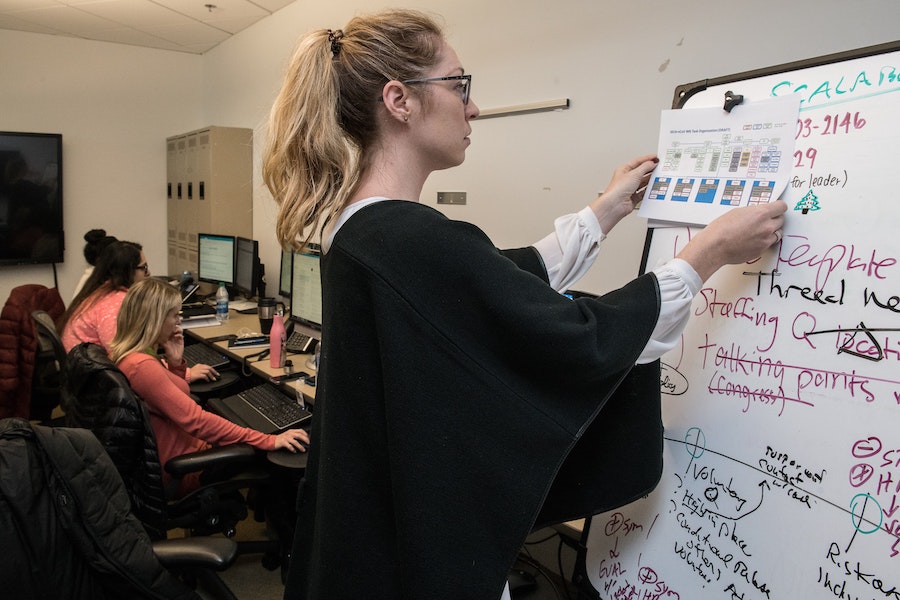By: Itai Green
The Coronavirus is having an equal impact on companies, giant conglomerates, and startups. Companies are dealing with the crisis in various ways – let’s look at how in this article.
Within a short period of time, all are seeing dramatic decreases in income, more employee absences, delayed decision-making on the part of potential clients, suppliers under pressure because of supply-chain issues, and significant damage to an international market becoming more dependent on conference calls than on face-to-face meetings. Anyone relying on Chinese suppliers has been experiencing this crisis for three months already.
Many are having their employees work from home to reduce the spread of the virus; others are cutting down on manpower; employees are going on unpaid leave; salaries are being cut by up to 20 percent, and more.
Naturally, the large, manpower-heavy corporations are finding it tough to reduce their fixed expenses, including salary costs and rent, while technology-intensive startups, with their greater flexibility, can adapt both their business models and expenditure structure to the vagaries of the market.
Startups are changing their employee compensation models to help their cash flow and ensure long-term stability by a combination of salary cost deferrals, salary reductions, and cuts to other employee options. Startups are also shifting activity to their employees’ homes, thus reducing expenses on office space, property taxes, communications, utility bills, etc.
One example of startup creativity is an initiative I recently discovered. Startups that have realized that international conferences will not be held in the next several months – conferences that were a major base for marketing activity and business development – are, via entrepreneur communities in their fields, directly addressing potential clients and inviting them to virtual conferences. In these virtual conferences, entrepreneurs introduce their innovations to the international corporations, thereby rendering physical conferences moot.
The need of giant conglomerates to rapidly become significantly more efficient, formulate new business models, leverage existing assets into new revenue, be flexible in their employment models, develop their capacity for distance work, and more, at the same time as they are reducing manpower, is precisely the time to map out the steps corporations can take together with partners in technology as an alternative to relying on costly and rigid internal resources.
The greater the role technology plays in a corporation – vis-à-vis clients and in terms of daily operations – the more flexible it is and the greater its chances of successfully surviving any crisis.
This is the time for corporations to build business partnerships with specialized, maximally-flexible third parties at the technological forefront. This is the time to assimilate startup innovations and advanced technologies based on the rules I formulated in my former blog post. This is the time to egos on the side and rev up quick processes.
The corporate need that startups can provide for in the most effective and efficient way is an opportunity for both sides, with some caveats: startups will have to think outside the box, improvise, target potential clients, and offer business models corporations won’t be able to refuse, while corporations will have to expand their cooperative ventures with startups, or even, in some cases, buy them and their talented people outright. Corporations that manage to do so with emerge from this crisis leaner, more technological, and more efficient than their competitors. The board members have an important role to play in this, as I described here.
In the world of business, the COVID-19 crisis is an opportunity for beneficial partnerships between corporations and startups.
About the Author
Itai Green is the founder and CEO of Innovate Israel. He is one of the dominant leaders of Israel’s corporate open innovation. Itai is recognised as a leading player in Israel’s startup ecosystem and is at the forefront of launching its growth at a rapid pace. Itai leads innovation processes by connecting global corporations with the Israeli startup community to create advanced technological solutions; focusing on IT, consumer products, pharma, finance, travel, e-commerce, retail, banking, insurance, energy, construction tech and IoT. Itai is a member in several startup advisory boards. In the past, Itai was head of business development and Innovation at Amadeus IT Group in Israel, amongst other prominent positions at Elbit, CEO at Maxtech Technologies, VP Business Development at Techtium and the co-founder of JerusalemOnline. Itai is the founder of the ITTS community (Israel Travel Tech Startups). ITTS houses 350 Israeli traveltech entrepreneurs and strengthens the internal collaboration between startups, as well as increases the level of engagement between startups, multinationals and investors. Itai has also created the IITS community (Israel Insurance Tech Startups) for the Insurance start-up sector.
Email: green@innovate-israel.com
Featured image via Unsplash.

